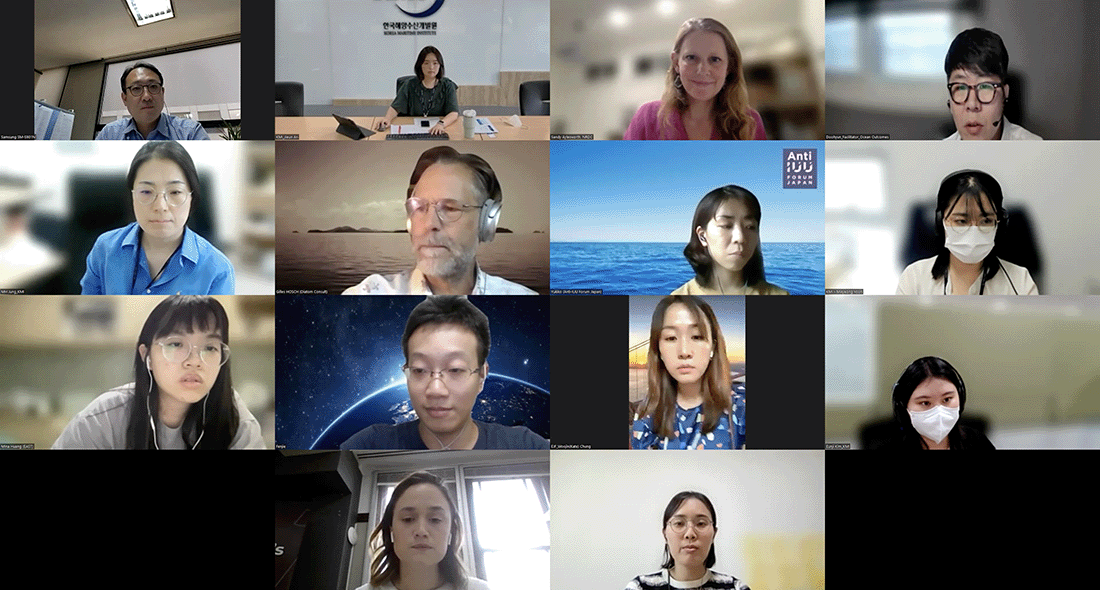Developing Solutions to Illegal Seafood Imports in Northeast Asian Markets

A recent webinar workshop co-organized by the Korea Maritime Institute (KMI) and Ocean Outcomes helped to identify solutions to the problem of illegal, unreported, and unregulated (IUU) seafood making its way into Korea’s seafood market.
Korea is one of the ten largest seafood importers in the world — which combined import 61% of global aquatic products by value. This has led to growing concern over possible IUU seafood imports from high risk countries, such as China, entering the consumer market without proper monitoring or preventative measures in place.
Globally, there are 8-14 million metric tons of IUU fish entering markets every year, an amount worth an estimated 9-17 billion USD, according to a recent research of University of British Columbia. Thus, it is crucial for the largest seafood importing countries to implement effective seafood import control rules and to contribute to combating IUU seafood seeking lucrative markets. In recent years, the European Union, United States and Japan have put forth enormous effort to fight IUU and strengthen both control and monitoring of their seafood imports, and we are now working to replicate these successes in the Korean context.
The workshop comprised 20 participants working on IUU solutions across Northeast Asia, representing 14 different organizations from 6 countries.
A key component of the discussion was identifying and discussing the differing seafood import schemes in the different countries as unilateral seafood import controls require exporters to provide different information to different markets. Meanwhile, seafood import controls that are based on multilateral frameworks have proven successful, as exporters don’t have to meet different requirements for different importers, and unified information requirements by Regional Fisheries Management Organizations (RFMOs) are applied in all supply chains. Examples of this include Commission for the Conservation of Antarctic Marine Living Resources (CCAMLR) for toothfish and International Commission for the Conservation of Atlantic Tuna (ICCAT) for bluefin tuna. To have real impact and contribute to conservation efforts, any mechanisms that control and monitor seafood import need to be done at multilateral levels.
The webinar discussions focused on the recommendations that KMI researchers will produce for three involved groups: governmental authorities, seafood importers and seafood export companies.
KMI researchers will recommend that Korean government authorities create a similar seafood import monitoring/control system that is capable of preventing IUU seafood from being imported by implementing laws and regulations, related policies, administrative and operating systems, responsible organizations and roles, and other measures that fall within the scope of government. For seafood importers, the goal is to help them create their own import monitoring measures to prevent IUU seafood from entering their supply chain.
The discussions and recommendations from the webinar will be incorporated in the KMI's report that will be published on its website and submitted to the import authorities as a recommendation for policy change.